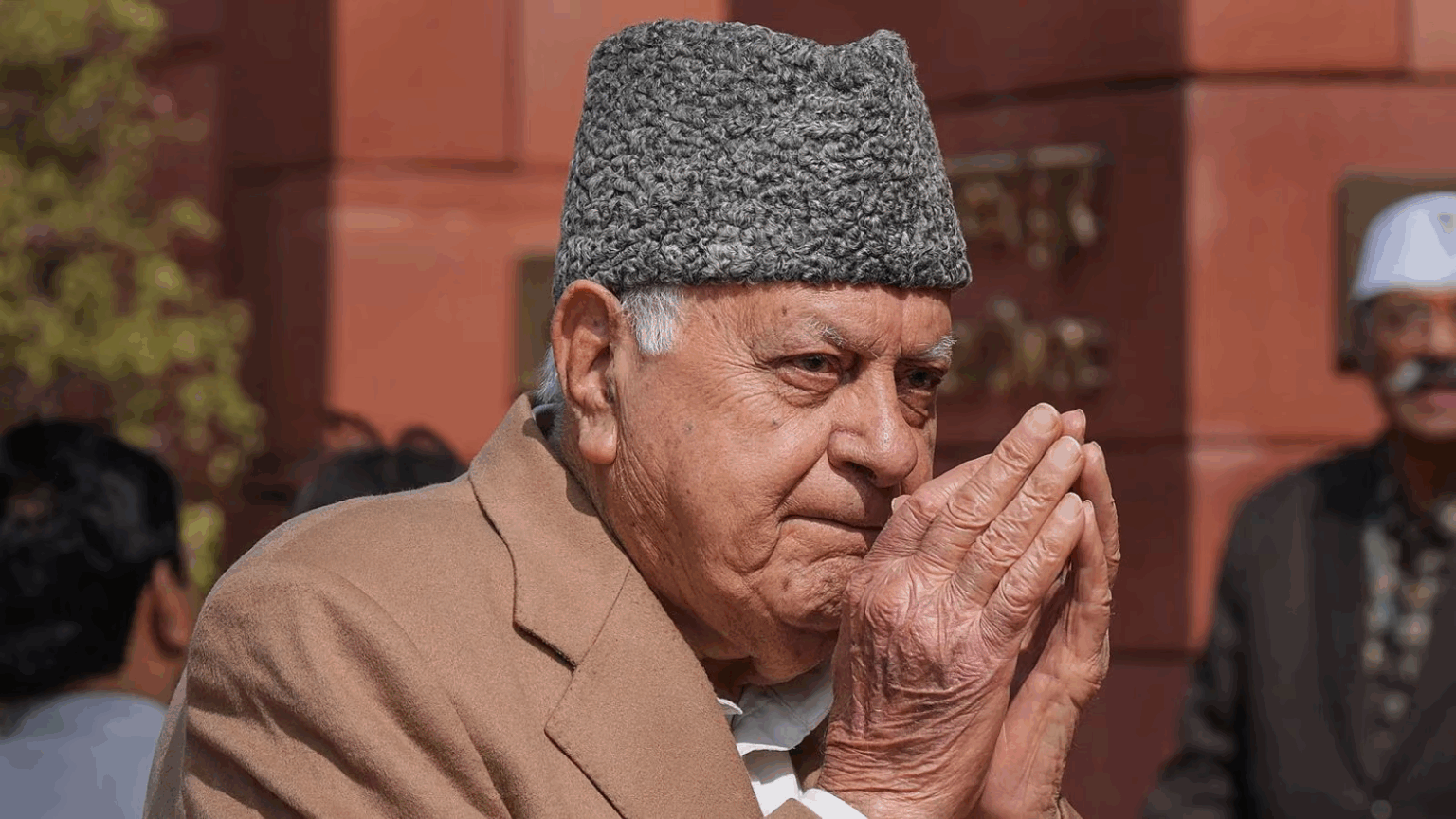Farooq Abdullah’s 1947 Response to Calls for Merging Kashmir with Pakistan
In the wake of the Pahalgam terror attack on April 22, 2025, Jammu and Kashmir National Conference (JKNC) chief Farooq Abdullah delivered a strong message to Pakistan. He asserted that Kashmir will never become part of Pakistan and reminded them that India rejected the two-nation theory in 1947. The attack, which killed 26 people, mostly tourists, has heightened tensions between India and Pakistan, prompting Abdullah to call for a firm and decisive response.
By our correspondent, New Delhi:
Farooq Abdullah’s Firm Stance: “Kashmir Will Never Join Pakistan”
On April 28, 2025, Farooq Abdullah spoke to ANI and expressed his frustration with Pakistan’s actions following the Pahalgam attack. He stated, “It’s unfortunate that our neighbor fails to understand that they have murdered humanity. If they think such acts will make us join Pakistan, we must clear their misconception. We didn’t go with them in 1947, so why would we go now? We threw the two-nation theory into the water back then, and we are still not ready to accept it today. Hindus, Muslims, Sikhs, Christians—we are all one. Those who think we are weakening are mistaken. We are growing stronger, and we will give them a befitting reply.”
Abdullah further emphasized that the time for dialogue has passed. He questioned, “I’ve always been in favor of talks with Pakistan, but what answer do we give to those who lost their loved ones? Are we doing justice to them? The country doesn’t want another Balakot—it wants action that ensures such attacks never happen again.”
Pahalgam Attack: A Major Setback
The terror attack in Pahalgam’s Baisaran Valley on April 22, 2025, claimed 26 lives, including 25 Indian tourists and one Nepali citizen, making it one of the deadliest civilian attacks in Kashmir in recent years. The attackers targeted men after asking victims their religion, shooting them at close range. The Resistance Front (TRF), believed to be an affiliate of Lashkar-e-Taiba, initially claimed responsibility but later retracted the statement. Indian security agencies have pointed to Pakistan’s involvement, further escalating bilateral tensions.
Omar Abdullah’s Emotional Address: “I Have No Words to Apologize”
Jammu and Kashmir Chief Minister Omar Abdullah also expressed deep sorrow over the attack. Speaking in the state assembly on April 28, he said, “The entire nation is hurt by this attack. This isn’t the first time—we’ve seen attacks on the Amarnath Yatra, Muslim villages in Doda, and Kashmiri Pandit settlements. This Baisaran attack is the biggest in 21 years. Now we fear where the next attack will strike. I was present with the police at the tribute ceremony for the 26 victims, but I had no words to console their families.”
Omar acknowledged that while the attack wasn’t a direct failure of his government, he felt responsible as the chief minister. He added, “By promoting tourism, I invited people to come here. It was my duty to ensure they returned safely, but I couldn’t do that. I don’t even have words to apologize.”
A Message to Pakistan: Unity and a Call for Strong Action
Farooq Abdullah outright rejected Pakistan’s two-nation theory, emphasizing India’s unity across religions. He stated that such attacks only strengthen India’s resolve. His remarks come at a time when India has taken several diplomatic steps in response to the attack, including suspending the Indus Waters Treaty, closing the Wagah border, and canceling visas for Pakistani nationals.
Abdullah stressed the need for decisive action, saying that only a strong response can prevent future attacks. His reference to 1947 underscores Kashmir’s integration with India and its rejection of Pakistan’s ideology, a stance that resonates with India’s broader policy on the region.
The Pahalgam attack has once again disrupted peace and tourism in Kashmir. Both Farooq and Omar Abdullah have strongly condemned the attack and sent a clear message to Pakistan. Farooq’s reference to 1947 and rejection of the two-nation theory reaffirms that Kashmir is an integral part of India. Following this attack, there is a growing expectation for the Indian government and Kashmir administration to take stringent measures to prevent such incidents in the future.


